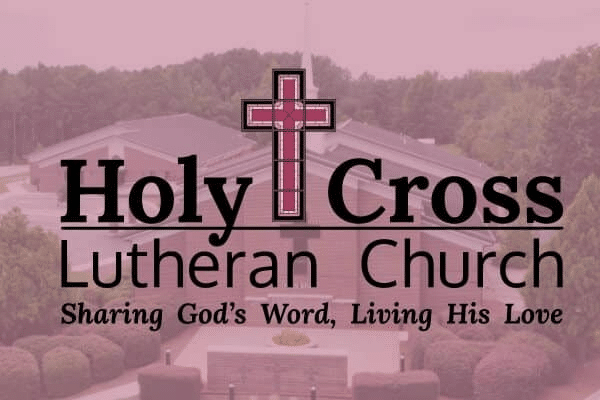
Hebrews 11:1-16
August 10, 2025
There is an episode on the old MASH television series where everyone in the camp is freezing from the cold weather in Korea, except for Hawkeye, because he was wearing a set of long-johns, long underwear, that went from his shoulders to his ankles that his father had sent to him. Hawkeye’s roommate, Trapper, was getting sick from the cold, so Hawkeye took off and gave Trapper his set of long-johns to help him feel better. The next day they were playing a game of poker with some of the others in the unit and Trapper did not have any money left to bet in order to continue playing a hand that he was sure he would win. So Trapper asked if he could put the long-johns he was wearing in the pot for his bet. Everyone at the table viewed those long-johns as being of great value and Hawkeye was not happy that he was willing to bet the long-johns that he gave him to help him feel better. But Trapper assured him that the cards he had would win. When it came time to lay down their cards, Trapper had a full house – 3 queens and 2 aces. As Trapper was about to take the money, the guy next to him laid down 4 twos, and four of a kind always beats a full house. Hawkeye was very upset that Trapper had just lost his long-johns, and Trapper was stunned. He was so sure, so certain, he would win. What happened?
I would like us to consider today the difference between Trapper’s confidence in his cards and what Hebrews 11, our second lesson for today, says about faith. Hebrews 11:1 says, “Now faith is the assurance of things hoped for, the conviction of things not seen.” Trapper was sure that his cards were high enough to win, even though he could not see the cards that the others were holding. So what’s the difference? Haven’t we all had times where we were so sure of something only to find out later it was not so? Or have you ever been accused of “blind faith,” in that you believed in something that was considered to be out of step with the real world? What
makes our Christian faith different than that of Trapper’s faith in his cards? Or are we all just gamblers, hedging our bets on eternity?
Based on Hebrews 11:1, faith is a solid trust in things we cannot necessarily prove. This does not mean that faith is blind, however, faith sees God’s promises and bases its trust on them. For example, the writer of Hebrews takes us back to the beginning and says, “By faith we understand that the universe was created by the word of God, so that what is seen was not made out of things that are visible” (Hebrews 11:3). While we do not have a video proving that God created the world in this manner, we believe it to be true because God said that’s the way it happened. That’s faith.
But doesn’t that just prove that faith is blind? I mean what about the authorities in science who say that the world was created from a big explosion? They will argue that the evidence for life shows a gradual change over time, evolving from the simple to the complex. If you go to almost any natural history museum, you will see them lay out the steps of evolution over millions and billions of years. Personally, I think it takes more faith to believe that than what the Bible teaches. After all, the world we live in is one of order. Gravity keeps us from floating up into the sky. The air has just the right amount of oxygen to sustain us. Migratory birds fly thousands of miles without a map every year and do not get lost. Bones break but are able to mend themselves once they are set. To believe that this complex yet orderly world could come into existence through a huge explosion and gradual evolution is like saying that if you dumped a bag of Scrabble game-pieces on the floor the letters would somehow arrange themselves into a poem.
But if we are sure God created the world through His words in 6 days only because it feels degrading to imagine that our ancestors were monkeys or because we need someone bigger than ourselves to lean on, then our faith is no better than a gambler’s. We believe then only because we want it to be true. That’s not what the people in the Old Testament, such as Abel, Enoch, Noah, and Abraham, were commended for, as listed in this text. Why did they believe and why
do we believe that God created the universe through His words? Because God says so. Our faith is sure of what we hope for and certain of what we do not see, not because it makes us feel good or it sounds reasonable or we’ve seen it for ourselves – after all, none of us were there at creation, but rather because that’s what God has said. And He is reliable, trustworthy, and true. That’s what gives our faith sureness and certainty.
For example, when God told Abraham to leave his hometown and go to a place that he had never seen, but that God would show him, Abraham went. Verse 8: “By faith Abraham obeyed when he was called to go out to a place that he was to receive as an inheritance. And he went out, not knowing where he was going.” Why did he go? Because God called him to do so and made a promise to Abraham that someday his descendants would one day possess the land and later through them the Savior of the world would come who would bring blessings for all people. Abraham never saw any evidence that all that would happen, and he died before any of that happened, but so sure and certain was Abraham that God would keep His word that he left the land he knew and died as a stranger in a foreign land. Faith takes God at His word.
Abraham also believed that eventually God would lead him to his home in heaven far away from the difficulties and challenges of this life. Verse 10 explains this saying, “For Abraham was looking forward to the city that has foundations, whose designer and builder is God.” In the same way we may not know where God is going to take us here on earth, but we do know that He is leading us to a home in heaven.
But is that just wishful thinking to believe that there is such a place called heaven where all of our struggles and heartaches will be taken away? Consider this: does it take any more faith to believe that heaven exists than to believe there is such a place called the Amazon Rainforest? Most of us have never been to the Amazon Rainforest. So if you haven’t been there, how do you know that it exists? If you’ve seen pictures of it from friends or on the internet, how do you
know that those pictures you saw were really taken in the Amazon Rainforest? You don’t know, do you? You have to take it on faith that there is a place called the Amazon Rainforest where there are people, mountains, animals, and rivers.
How is that any different than believing that there is a heaven? Sure, we have never been there, but we know someone who has. Jesus once said, “In my Father’s house are many rooms; if it were not so, I would have told you. I am going there to prepare a place for you” (John 14:2). In the book of Revelation the Apostle John gives us a brief description of heaven saying, “There before me was a throne in heaven with someone sitting on it…A rainbow, resembling an emerald, encircles the throne…And before the throne, seven lamps were blazing…and there was what looked like a sea of glass, clear as crystal” (Revelation 4:2-6).
Should it be any harder to believe that there is a place called heaven than believing that there is a place called the Amazon Rainforest? No, in fact it should be easier because God himself tells us about heaven, and He has prepared heaven for us by sending His Son, Jesus, to die on a cross for our sins. Believe in Him, so you can live in that wonderful place God has prepared for you. Like Abraham, let us remember that our real home is in heaven. Yes, this life is filled with disappointments, pains, troubles, and sorrows; but don’t let those dampen your hope in what Jesus has prepared for you in heaven.
Put God first in everything and let us live by faith that is sure and certain because of God’s promises. It is God who is trustworthy and true, and that’s no gamble. The hope His promises bring will not disappoint or prove false. Heaven is the inheritance that is waiting for you. Remember, you don’t have to do anything to get an inheritance. Someone has to die and the inheritance is yours. Jesus died and God’s Word name us as the beneficiaries of His estate. Count on it. You’ve got God’s Word on it from the beginning, now, and throughout eternity.


